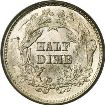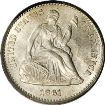Half Dimes - A smaller version of the modern day Nickel
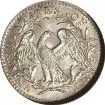
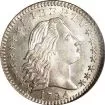
Collecting Half Dimes by date and variety was never very popular with most coin collectors. However, by doing a little research I'm sure we could probably find some numismatists that enjoy this area of endeavor. Mostly, these small silver coins are sought after by the type set collector. Collectors that focus
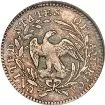
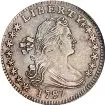
on type sets only need one of each design to complete his or her collection and are satisfied with a good example of each.
From the beginning, the silver coinage produced by the U.S. Mint was designed to match each other. Silver three cent pieces,
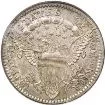
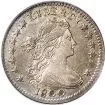
which had a six pointed star on the obverse, were excluded from the mix. However, the silver Half Dime, Dime, Quarter, Half Dollar, Dollar, and even the Twenty Cent Piece all had similar designs given the respective year of mintage.
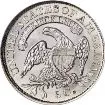
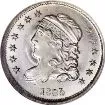
This coin was authorized by the Act of April 2, 1792. Although some of the coins were dated 1794 they began production in 1795.
These coins were much smaller than dimes in weight, thickness, and diameter. This is what prompted the name "Half-Dime". The first
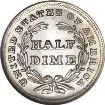
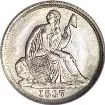
issue was that of a flowing hair design by Robert Scot on the obverse and of a small eagle on the reverse.
These silver coins were minted from 1794 through 1873. Since the Federal Government passed legislation to make copper-nickel five
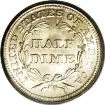
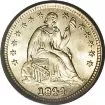
cent pieces, these coins were deemed a redundant series and thus were discontinued.
Below is a list of the eight major types in this series.
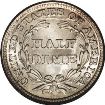
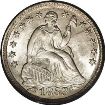
Draped Bust Type Small Eagle (1796-1797)
Draped Bust Type Heraldic Eagle (1800-1805)
Capped Bust Type (1829-1837)
Seated Liberty Type No Stars (1837-1838)
Seated Liberty Type Stars (1838-1859)
Seated Liberty Type Arrows (1853-1855)
Seated Liberty Type Legend (1860-1873)
